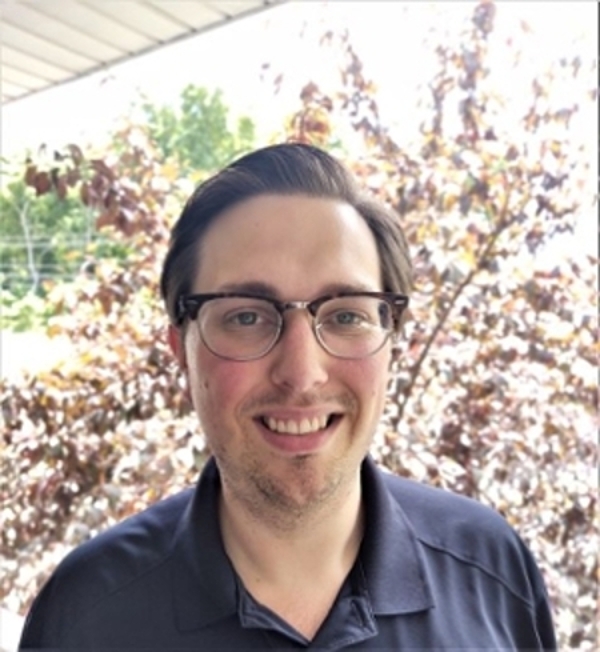Brian Carlson, Ph.D
Assistant Professor of Microbiology/Genetics at NKU, who was a double major in Biology and German at XU
 How did your major contribute to preparing you for your current career?
How did your major contribute to preparing you for your current career?
I can honestly say that I hadn’t realized just how much learning German would help me prepare for my career as a scientist and an educator until Dr. Luken encouraged me to find a way to combine my interests in Biology and German for my Senior Research Project. I had always had an interest in genetics, but had never realized that Gregor Mendel, an Augustinian monk and the Father of Modern Genetics, published his work in German. Needless to say, Mendel and his paper, ,,Versuche über Pflanzenhybriden,'' became the focus of my project. As I moved on to my graduate work in evolutionary genetics and my career teaching undergraduate biology, I have gained an even greater appreciation for how many papers relevant to my work were published in German, how many scientific terms have been borrowed from the German language, and even how many kits and tools in my lab are made by German firms. As a result, Dr. Luken got to hear me talk about “Zeitgebers” (lit. “time givers;” cyclic environmental cues) as I defended my doctoral dissertation and to this day all of the research student that I mentor learn what the “GmbH” after a firm name on our lab supplies stands for.
How did you major influence your worldview?
Learning any language will broaden your worldview and aid you in stepping out of your own cultural frame of reference and seeing the important issues that our world grapples with from another perspective. Studying German has encouraged me to look at how other countries have dealt with issues such as healthcare, immigration, economic policy, international relations, and the commemoration of historical events, both proud and painful, when forming my own views and considering how the United States might proceed when our own circumstances call for action.
How did your major help you cultivate interests and passions that extend beyond your career to a rewarding personal life?
I wholeheartedly embrace the idea of a liberal arts education and place a high value on the ability of broadening your learning horizons to help you become a more knowledgeable and well-rounded person. In my role as an educator, I am often in a position to help students plan their courses, whether that be for their first semester at an orientation, or over the course of several years in a program as an advisor. After making sure that they have whatever classes they “need” to stay on track for their major, I do my very best to encourage them to take a wide range of other classes that are of interest to them. In doing so, my pitch is always the same: what you learn in your major will make you a good candidate for a job, but what you learn in your other classes is what will make you interesting to talk to in interviews, at conferences, or over dinner. In my case, the time that I spent studying the German language - and the people who speak it - has enabled me to share interesting information and anecdotes on a far wider variety of topics than I could have ever imagined when I sat down in my first German class.
What advice would you give to a student considering a major in German?
Do it! German is a great major on its own, but it also makes an excellent complement to other majors and programs. The only regret that I have is that I wasn’t able to make studying abroad work in my schedule because I started exploring the opportunity too late. If I could do it all over again, that’s the one thing that I would do differently with my time at Xavier.